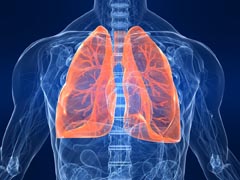Cardiothoracic Surgery Residency
 With six full-time adult cardiac surgeons and four dedicated general thoracic surgeons, about 800 cardiac cases and more than 600 major thoracic cases were performed at BIDMC over the past year. The varieties of operations include:
With six full-time adult cardiac surgeons and four dedicated general thoracic surgeons, about 800 cardiac cases and more than 600 major thoracic cases were performed at BIDMC over the past year. The varieties of operations include:
- VATS lobectomy and minimally invasive esophagectomy (MIE)
- Tracheal resection and tracheobronchoplasty
- Minimally invasive and "off-bypass" coronary revascularizations
- Aortic homografts
- Aortic root operations
- Other major aortic procedures
Teaching by outstanding Harvard Medical School faculty enables the resident to become proficient in the operative and perioperative care of patients. Progress toward technical proficiency is evaluated at multiple points during the residency. Multiple educational sessions occur throughout the week on each service, including preoperative case conference, core curriculum conference, professor rounds, clinical case conference and cardiac catheterization conference. In addition, monthly journal clubs and multidisciplinary airway conferences are held. Participation in the Harvard Combined Cardiothoracic Conference is mandatory.
The Beth Israel Deaconess Medical Center Cardiothoracic Surgery Residency Program participates in ERAS, the Electronic Residency Application Service. The program selects fellows through the National Resident Matching Program in accordance with the policies established by the NRMP.
Our two-year program consists of:
- Six months of general thoracic surgery at BIDMC
- Nine months of adult cardiac surgery at BIDMC
- Three months of pediatric cardiac surgery at Boston Children's Hospital
- Six months of adult cardiothoracic surgery at BIDMC -- a chief resident experience on the adult cardiac surgery or general thoracic surgery service, a flexible designation depending on the trainee's career goals
General Thoracic Surgery
The first six-month block of the first year is composed of General Thoracic Surgery.
- Participation in the preoperative, operative and postoperative care of all patients, with the trainee serving as chief resident of the service
- Gradually increased operative autonomy, including complex minimally invasive pulmonary and esophageal operations, complex airway surgery and surgical treatment of airway disease
- Participation in the weekly Multidisciplinary Thoracic Clinic, followed by a conference at which thoracic surgeons, medical oncologists, radiation oncologists, pulmonologists and thoracic radiologists discuss the patients seen earlier in the day
- Close collaboration with Interventional Pulmonology, including a two-week rotation learning EBUS, rigid bronchoscopy with advanced endoscopic intervention, pleural ultrasound, and minimally invasive pleural interventions
Adult Cardiac Surgery
The second six-month block of the first year is composed of Adult Cardiac Surgery.
Exposure to:
- Coronary revascularization
- Valve repair and replacement
- Aortic surgery and repair of congenital defects seen in adult patients
- Repair of atrial septic defects
Participation in preoperative, operative and postoperative care
Residents are involved in the operative care at an early stage, but only at a time when the attending surgeon feels comfortable allowing the resident to perform an active role
- Training in transesophageal echocardiography
Boston Children's Hospital
During the second year, in a three-month block, the resident is at Boston Children's Hospital, where the resident is exposed to congenital cardiac surgery in infants, adolescents and young adult surgery. Pediatric cardiac surgery is an integral component of the specialty.
Adult Cardiac Surgery
During the second quarter of year two, in a three-month block, the resident is again exposed to cardiac surgery.
- The resident will function as the chief resident and will have primary oversight of all patients on the adult cardiac surgical service whether or not the resident participates in the operation
- Residents evaluate postoperatively all patients on which he/she participates in operative care, and at this point is the operating surgeon on the vast majority of cases
- Consult must be seen by the resident and the resident is expected to be involved in the decision-making process regarding indications and timing of operations
Adult Cardiothoracic Surgery
During the second half of year two, in a six-month block, the resident spends time on the Adult Cardiac Surgery or General Thoracic Surgery service. This will be dependent on the individual resident's eventual career focus and exposure to that point. The resident functions as the chief resident on either service.
